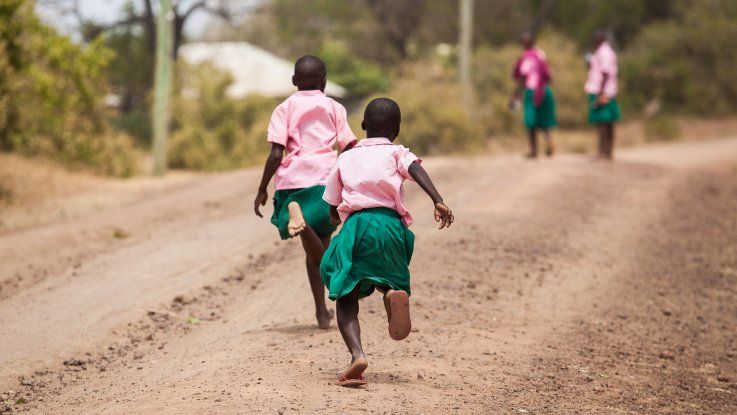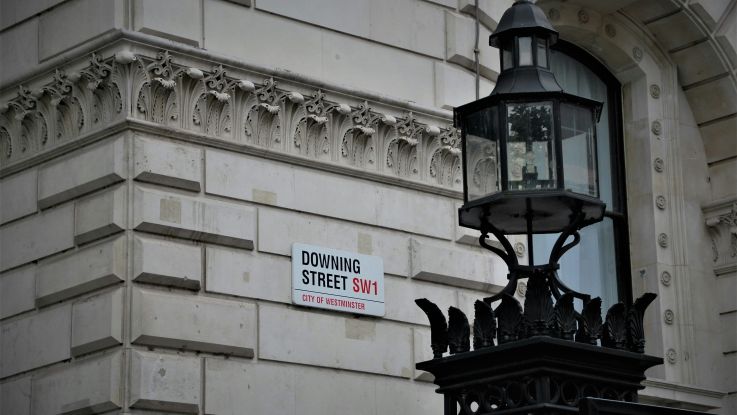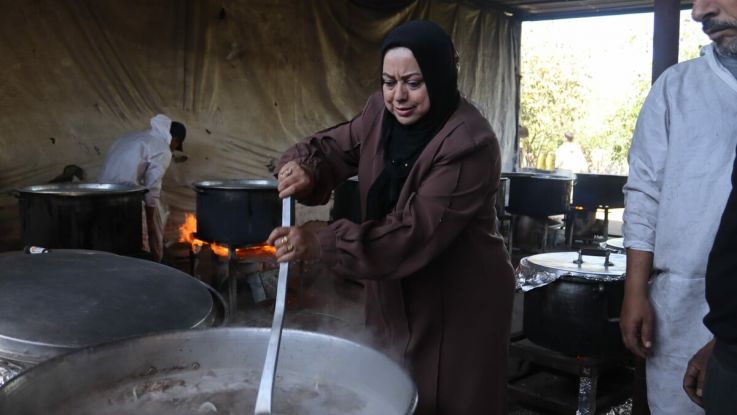Christie’s story: how sexual harassment has shaped my life
10 October 2019
Discover Christie’s story of sexual harassment, how the experience has shaped her feminist values, and why she stands with all women to say #MyBodyIsMine.
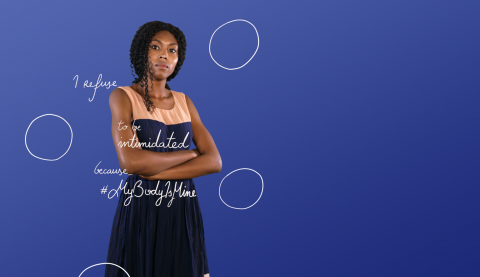
Christie from Nigeria joined the #MyBodyIsMine movement to speak out against sexual harassment. Photo: ActionAid
Growing up in Kogi, in central Nigeria, I frequently experienced sexual harassment from men. I’d help out at my mum’s shop each night after school, so I met lots of strangers every day.
From a young age, men who came to the shop would say things no girl should ever have to hear. There was nothing I could do: I had to be respectful, as they were mostly older than me.
But one day a man came into the shop and, unable to carry all of his shopping home, he asked for my help. My mum wasn’t there, but I agreed to give him a hand as he was a regular customer.
When we arrived at his house, he didn’t let me leave.
He began pulling me close… then trying to raise my skirt. I didn’t know what would happen next. I was scared.
But, without knowing where the strength came from, I pushed him away and ran home as fast as I could, shaking.
Traumatised, I remember cursing the fact that I was born a girl.
Until that point, I’d heard stories about girls being raped. But I never thought anyone I knew was capable of something like that.
My story of sexual harassment
Just a few days after the incident, I was returning home from running an errand when I saw the same man again.
Instantly, I thought to run away, but he grabbed my hand before I could escape.
While we struggled, he told me I was being silly - that there was no use being so uptight, because eventually everything I had would belong to a man… and it could be him.
No, I thought.
Screaming in anger, I pushed him to the ground. My body belongs to me, and not anyone else, I realised.
Shocked at my aggression, my attacker remained on the ground while I turned to leave. It dawned on me - my body really is mine. And that means no one can force me to do something I don’t want to do.
I became an activist to stop more women facing sexual harassment
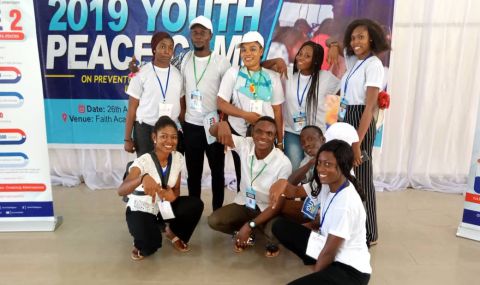
Me (first from top right) and other Activista Kogi members at a peace camp organised by ActionAid Nigeria calling to end violent extremism.
Years later, I met a friend who was a member of Activist Nigeria, an ActionAid-supported group who work to end violence and harassment, and fight for gender equality.
I was inspired by the work they were doing to fight sexual harassment on university campuses – something I’d experienced yet more times while walking home from classes at night.
When I joined the network, I set to work as part of ActionAid’s Safe Cities for Women campaign, demanding that school management install streetlights and security on campus - especially on paths leading to girls’ accommodation.
The result? The number of sexual harassment cases on campus fell drastically.
It was a success. I felt fulfilled, full of hope and most importantly, I knew I’d helped to save women from going through the kinds of experiences I’d been through.
Why it’s hard to speak out about sexual harassment
Too often in my community, girls face sexual harassment but are afraid to speak out.
They’re afraid they’ll be victim-blamed, afraid they won’t be believed, or even afraid of what the perpetrator will do.
The first time I was harassed, I was terrified of speaking out. But when it happened a second time, I knew it was time to raise my voice. I stood up, fought, and began to tell the world: my body is mine. Not anybody else’s.
Not everyone has the chance to fight back against their oppressors. And around the world, too few women have the opportunity to feel empowered, and take matters into their own hands.
That’s why I’m so proud to work alongside ActionAid and to be part of a movement that supports women to say #MyBodyIsMine.
Will you join us? Find out more about ActionAid's work and how you can help.

